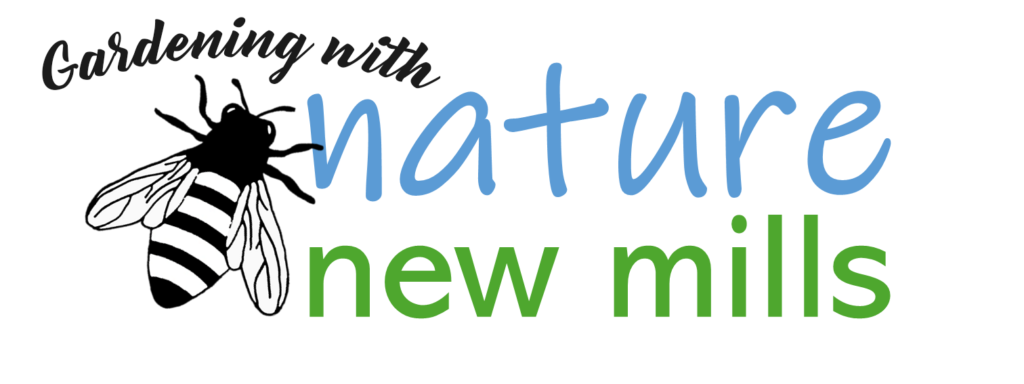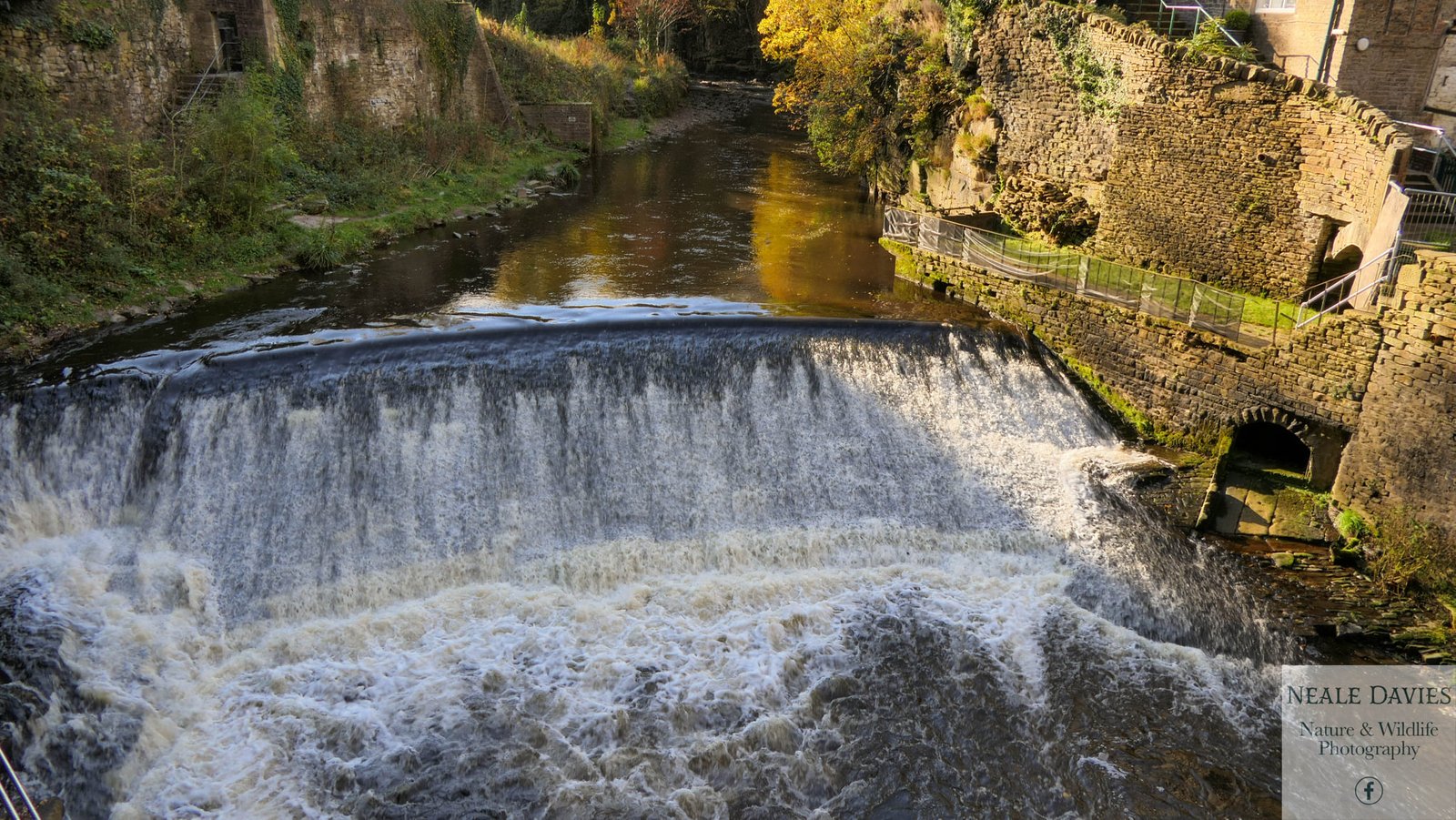
Anyone can participate in, or run, a project, and there’s a wide range of things to do. Nature New Mills aims to support all those that protect habitats and endangered species, and increase the variety and abundance of wildlife.
Some projects are being run by Nature New Mills itself, others by different groups. Some are specifically for nature, other projects aim to achieve something else but incorporate wildlife-friendly principles into their operation.
Current Projects
Gardening with Nature New Mills
All of our gardens can be a haven for nature. 10% of the UK is made up of gardens (more space than all our nature reserves combined) and these can provide homes and food for our native flora and fauna.
To show case wildlife friendly gardens, Nature New Mills had its first open gardens trail as part of Nurtures Nature Event 2022 in partnership with the New Mills festival
After a 2023 break, the trail was relaunched in 2024 as the gardening with nature new mills trail
Nature New Mills welcomes any projects that support bring nature into our gardens.
How can you make your garden more nature friendly?
- Avoiding chemicals
- Feed the wildlife by growing plants for pollinators; such as bees, butterflies, moths and insects. Think berries and seed heads for birds
- Give a hedgehog a home and make holes in your fences to allow Hedgehogs to move through gardens
- Making space for insects with log piles, bug and bee hotels, and being a little untidy
- Reducing our use of water by capturing rain water, not watering the lawn and growing drought tolerant plants
- Leaving grass to grow long in parts or through the summer months
- Avoiding peat containing compost and plants grown in peat, instead make your own compost for free!
Swifts

New Mills is lucky enough to be home to several colonies of swifts.
These endangered birds need buildings to nest in. They mate for life and return to the same nest site every year.
If changes are made to the building and they can’t get to their nests it’s thought they stop mating.
Swifts love nesting near other swifts. Deborah Pitman has been observing nest sites for three years now. This helps us understand the best places to put nesting boxes to support their natural sites.
Our group is always looking for people who are interested in joining in with surveying for swifts, making swift boxes and becoming advisors on where best to locate them. Email nature.newmills@gmail.com your contact details. You can do as much or as little as you like. If you emailed before Christmas, we’ll be in touch soon.
2025 sees us undertake a whole raft of work to support swifts thanks to funding from both High Peak Borough Council and Derbyshire Wildlife Trust. These organisations had faith in our plans due to work we’d done getting to understand our swift colonies (places where swifts nest in groups).
Plan For Nature: High Peak Borough Council have agreed to fund a variety initiatives to help people help swifts. This is from their fund to support the council’s Plan for Nature. Nature New Mills will be supporting communities in Chapel-En-Le-Frith and Whaley Bridge to form their own swift surveying groups. We have money for people to make their own universal bird boxes. We’ll also be able to offer householders boxes if their house fits the bill and is near to nesting swifts.
Wild Peak: Derbyshire Wildlife Trust are supporting the installation of a raft of universal bird boxes across New Mills and Hayfield, all on prominent public use buildings. The custodians of these buildings will be offering a helping hand to swifts and other red-listed birds (sparrows, starlings and house martins) that can all make use of the box.
If you’d like to take part, do get in touch. Contact Deborah Pitman: 07968 486556.
If you want to support this project and donate for additional boxes to be added at the time of installation, please use the donate button below. Where it asks for a note, enter ‘SWIFTS’ and tell us where you’d like your donation to go.
Rewilding Mousley Bottom
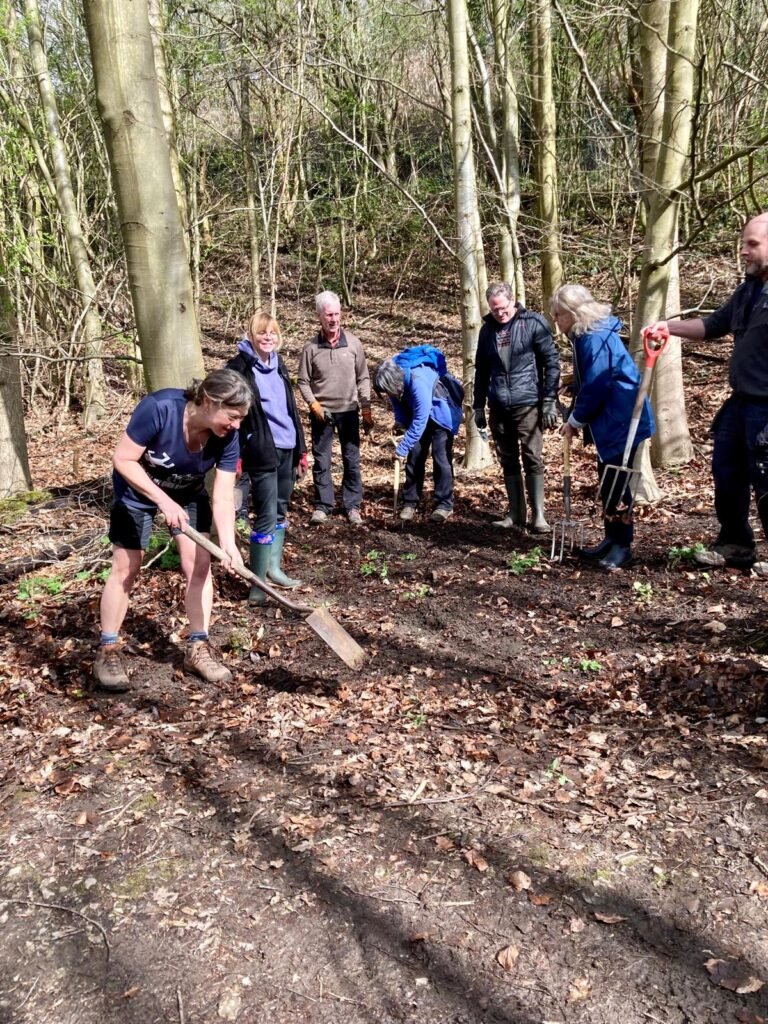


Everyone’s hearts are lifted by bluebells, lesser celandines and other spring flowers heralding the end of winter. In ecological terms these flowers are important sources of nutrition for many insects at a time of year when food is scarce.
The woodland at Mousley Bottom was planted from the 1980s on a reclaimed waste disposal site. As such, it hasn’t yet got the variety of species of more established woodlands which have arisen naturally.
This project aims to address this by inviting the members of the local community to collect locally sourced lesser celandine, red campion, bluebell, wood anemone and wild garlic, and then plant them in clearings in Mousley Bottom agreed with the site’s owner Derbyshire County Council.
It will take a few years for them to bloom and get established, but it will be worth the wait!
Community Tree Nurseries



Planting a tree is one of the easiest and most satisfying things anyone can do to connect with nature. Increasing woodland in the right places, and creating green corridors is central to nature recovery in the New Mills area.
However, local tree types fare best; they are adapted to local soils and conditions, and have much less risk of spreading disease. We also need a source of trees for situations where landowners may be unable to get grants or low-cost trees from other sources.
Collecting tree seeds and growing them on before planting out is a great way for the whole community to help wildlife. The creation of tree nurseries will enable us to grow enough saplings to supply local tree planting projects.
Initially, land at the the rear of The Torrs in the town centre will be used to create a small number of raised beds. We anticipate construction over Winter 2024/25, with the beds ready to take existing saplings from around March 2025.
Local households and organisations are encouraged to collect their own seeds and grow them on in containers in their own spaces too. It’s an easy and educational activity especially suitable for children’s groups and schools.
Tree Planting


New Mills has a low rate of tree cover (about 13%), and outside the river valleys much exists in isolated woods. More trees in the right places, connecting woodland and on low value farmland land, will help wildlife move around, provide food and shelter, help remove carbon dioxide from the atmosphere, and provide amenity and landscape value for ourselves..
Nature New Mills has produced a Tree Planting Guide, and is keen to work with any landowners or land managers to plant up suitable areas with the right types of trees. Some trees will be able to be provided from our Community Tree Nurseries, others may come from charities such as the Woodland Trust.
Many planting sessions will be open to Nature New Mills supporters; keep an eye on our Facebook Group events page for details.
Surveying and Recording
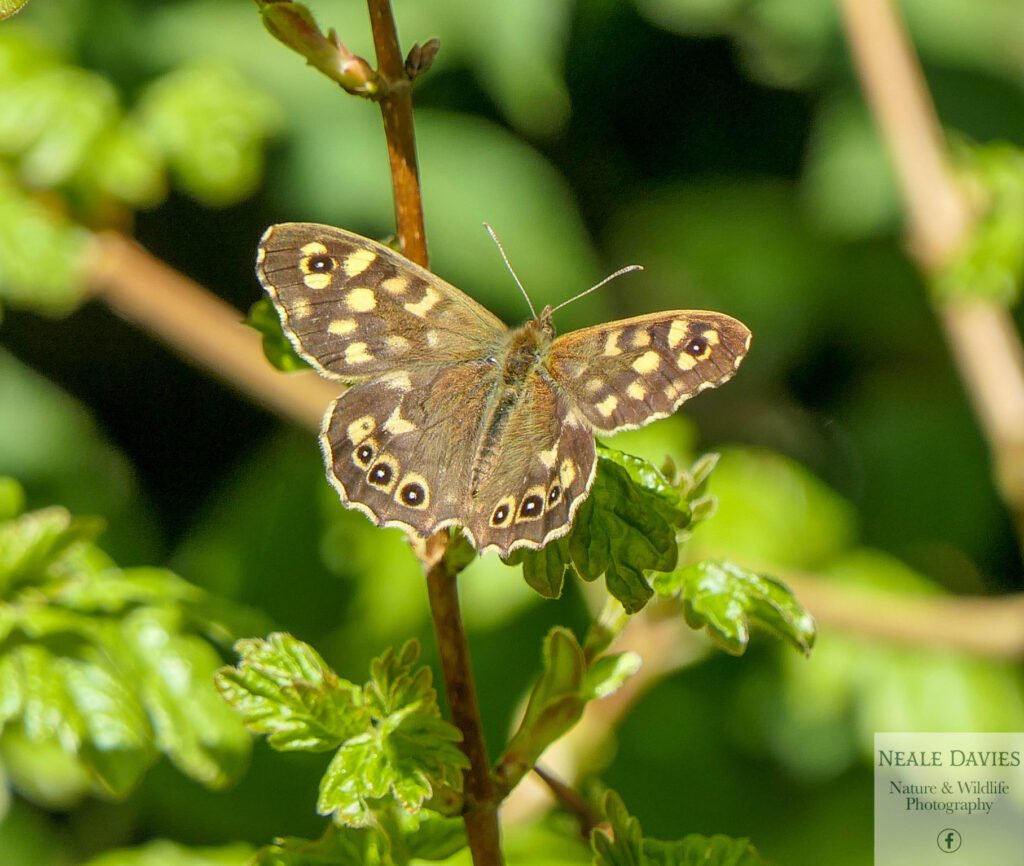


It’s important that we know the state of local wildlife; which species are struggling, where they live and may need protecting, and which new species are coming here to live.
You can identify species yourself using a smartphone app like iNaturalist’s Seek, and report them to the Derbyshire Biological Records Centre online.
Nature New Mills also plans to organise public surveying events, either looking for specific species, or Bioblitzes looking at what lives in certain locations.
Incredible Edible
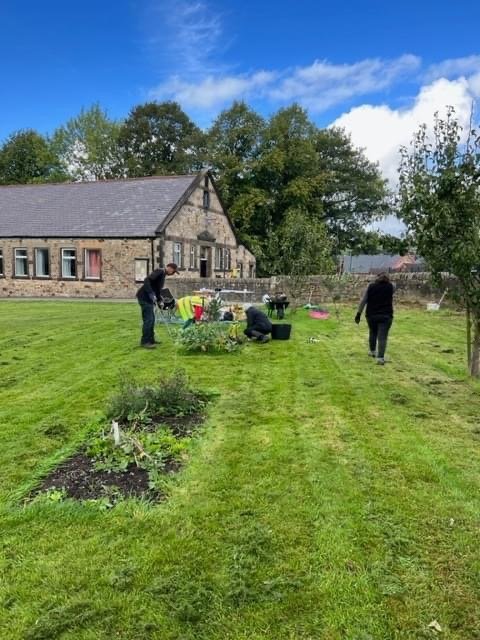


Incredible Edible New Mills aims to encourage growing our own food by holding regular gardening club activities for all the family. Currently there are outdoor sites at St George’s church field, at Torr Top car park and in the courtyard at Rock Mill.
During the winter families can work indoors making bug hotels, building bird feeders and learning more about the food we eat.
Local people have worked together transforming unused spaces into food-laden, attractive areas.
Friends of New Mills Stations



Nature New Mills has recently joined in with Friends of New Mills Stations (FoNMS), volunteering at both our Stations to enhance them for users. We have been developing nature friendly areas with our management of the little gardens. There are new stick piles, bug hotels, bee-friendly flowers, containers with attractive new plants plus even a few bird feeders. In many small ways we can add to what Nature has already provided and get pleasure from the results.
Balsam Bashing
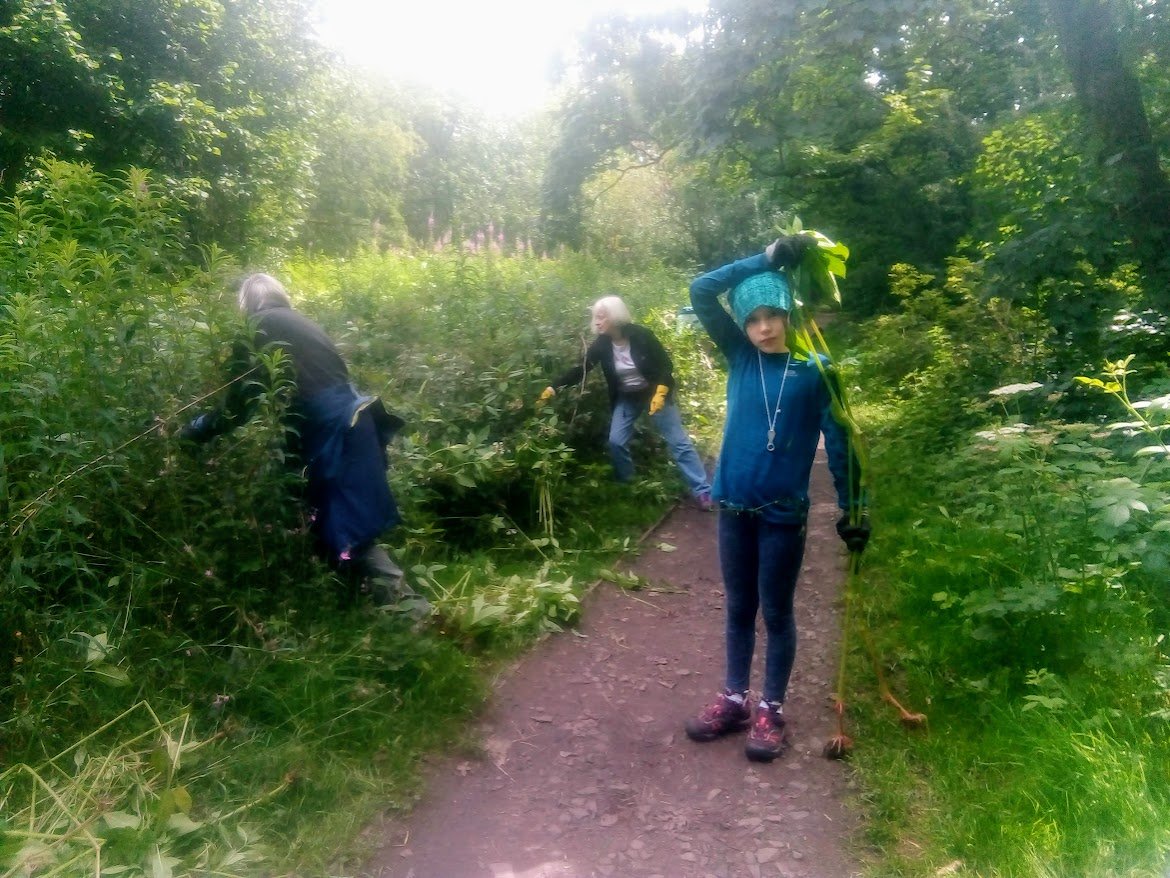


Himalayan balsam is an invasive non-native plant that likes to live in damper ground. It is a rapidly spreading annual that can grow over 6 feet high in a few months, out-competing and shading out other species, and leaving barren areas easily eroded over winter. Although bees like its nectar when it flowers, this is at the expense of a longer lasting food supply that a variety of other plants would have otherwise provided.
Himalayan balsam is widespread, so Nature New Mills seeks to reduce it in the most wildlife sensitive areas, working with the Town and County Councils and Derbyshire Wildlife Trust; in designated nature reserves, Mousley Bottom and the Torrs riverside park.
Balsam is easy to pull up by the roots, and should be crushed and piled up out of the way. We have regular working parties, which are fun and can be good exercise!
Wild Peak
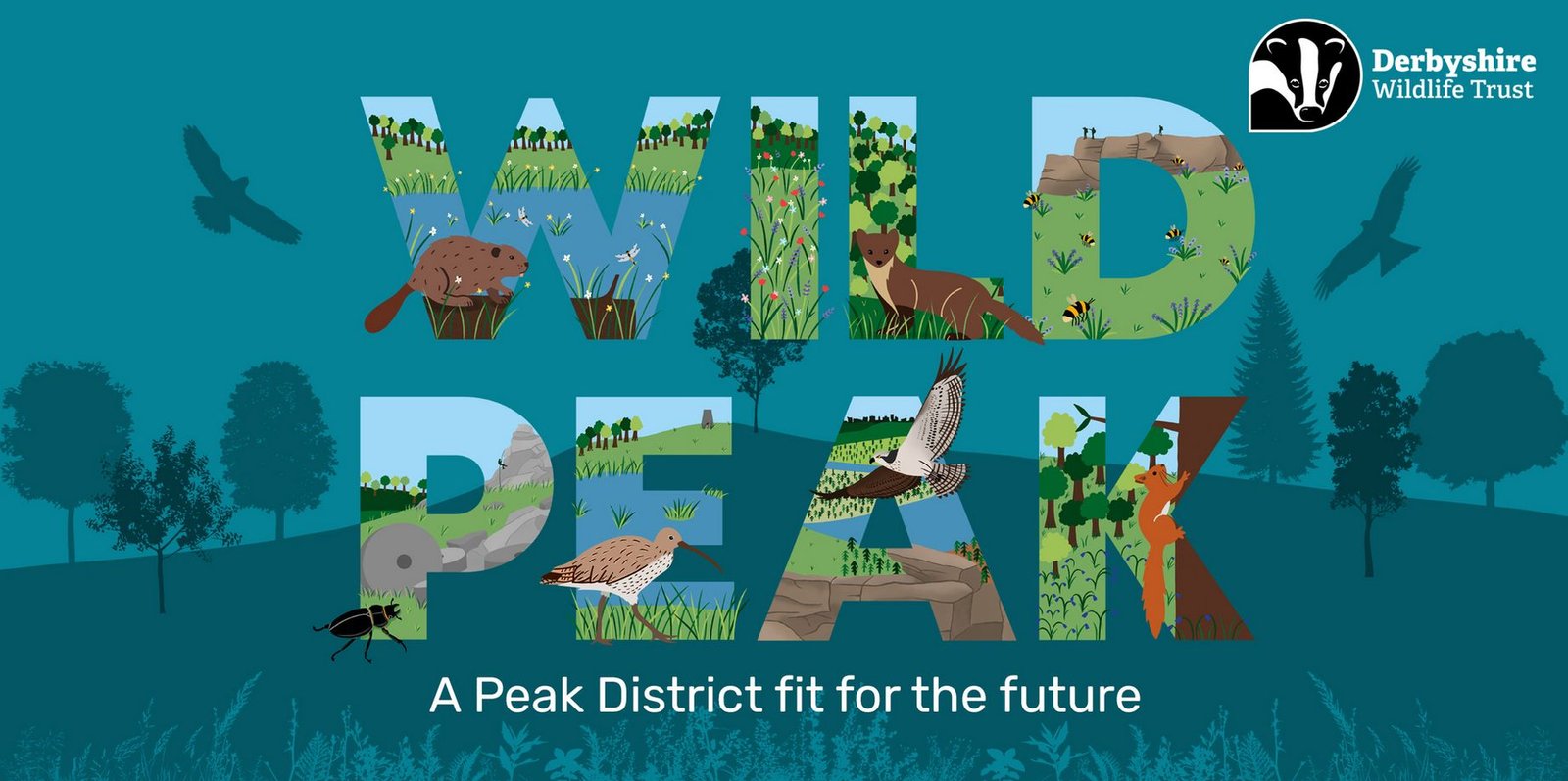
Wild Peak is Derbyshire Wildlife Trust’s ambitious rewilding project, that is working in close partnership with landowners, local projects and communities, neighboring Wildlife Trusts and Rewilding Britain to inspire and implement a landscape-scale, nature-led approach to nature’s recovery.
Building on Lawton’s conservation principles of bigger, better, more and joined up, the project is working towards creating, restoring and connecting wild spaces across the region; working with and between existing initiatives and conservation sites to create an on-the-ground nature recovery network.
As well as creating a network of wild spaces, the project is developing a network of people and communities to facilitate, support and celebrate nature’s recovery across the region.
Nature New Mills is enthusiastically supporting this vision, and is key to generating and delivering local community projects in particular. Look out for any arising opportunities!
Past Projects
Spring Bank Arts Pollinator Garden
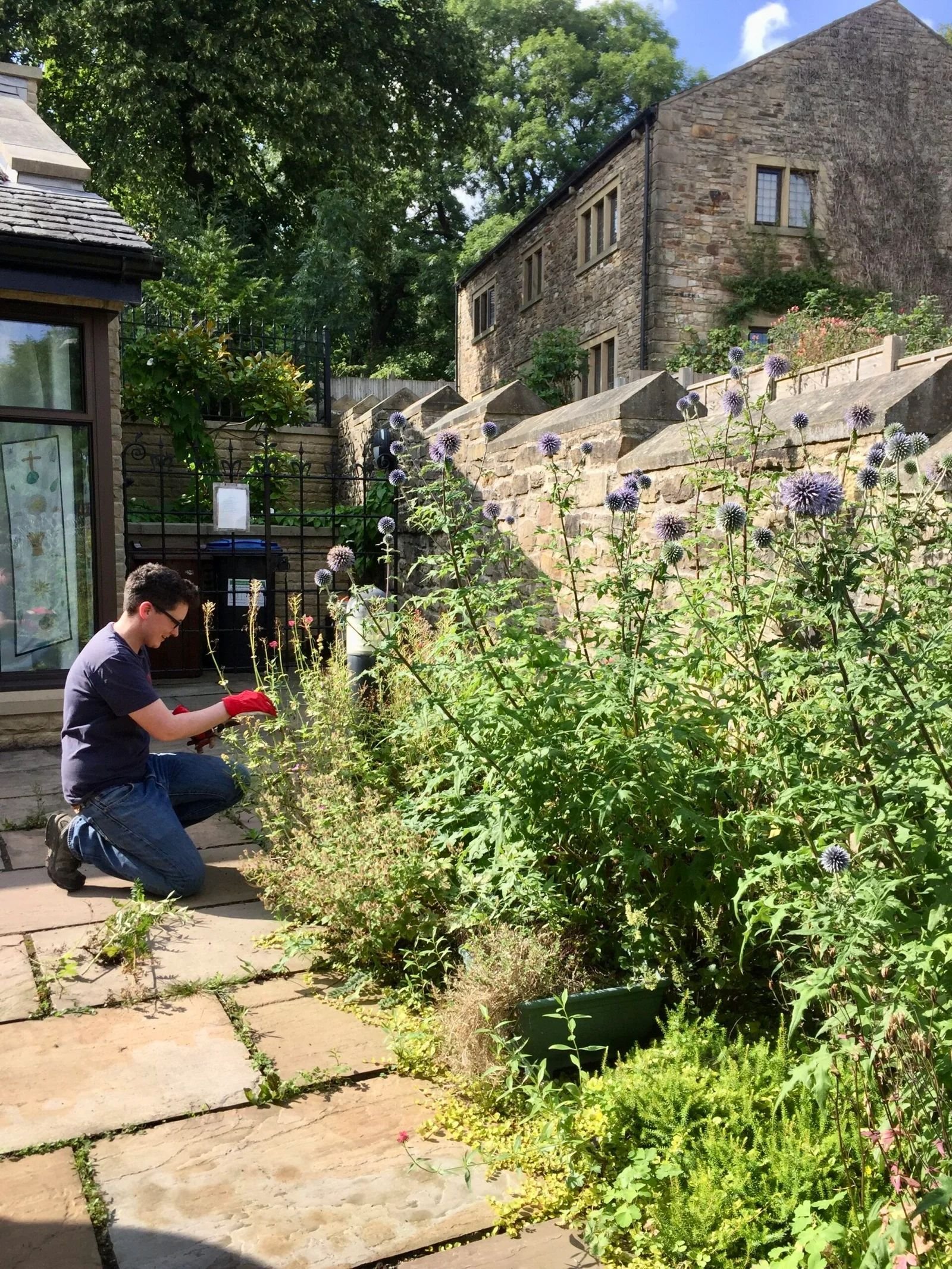


Spring Bank Arts Centre wanted to make a beautiful and useful garden in place of the rather dull front lawn. We collaborated with New Mills High School and with Incredible Edible New Mills to create a pollinator garden on the site. It continues to flourish and delight not only the pollinators but also visitors to the Arts Centre and passers by.
Nurtures Nature Event 2022



Over a weekend in May 2022, Nature New Mills organised an event to raise public awareness of the biodiversity crisis and how individuals can help to reverse the decline in plant and animal species in the local area.
There were events in NM town hall and on the Prom, guided walks in Goytside meadows and Mousley bottom nature reserves and a nature trail in the town. Up to 100 people attended and visited nature-friendly private gardens and public spaces.
The weekend was featured in the August edition of Derbyshire life.
The event was organised in conjunction with New Mills Festival, Walkers are welcome, NM natural history society, Incredible edible and was sponsored by Sustain Video and DCC councillor Ann Clark.
Forest Wellness Sessions
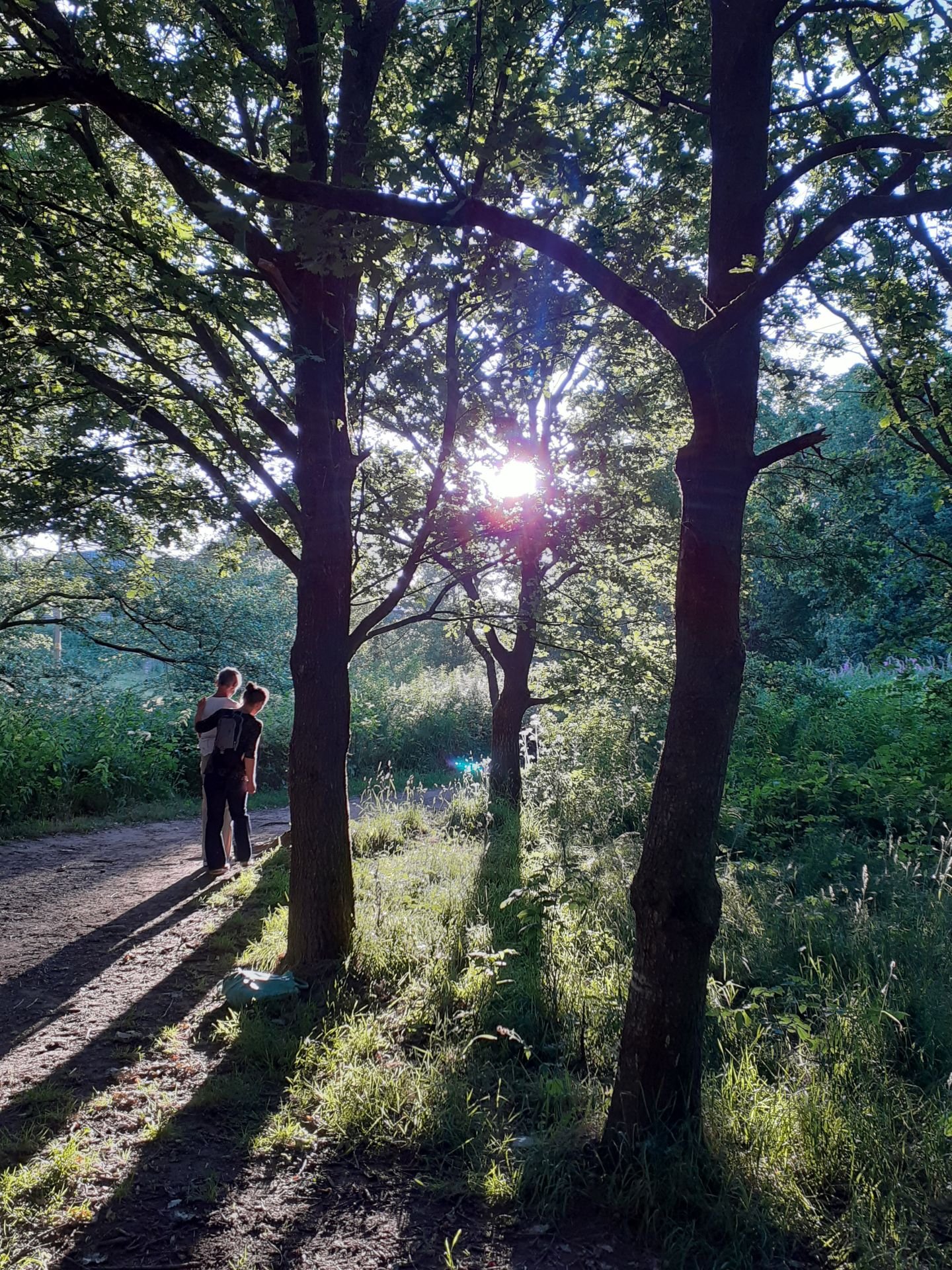


Nature New Mills teamed up with Intensely Personal to provide some taster forest wellness sessions in Mousley Bottom, to guide participants in bathing in the nourishment of nature, to slow down and rebalance themselves.

